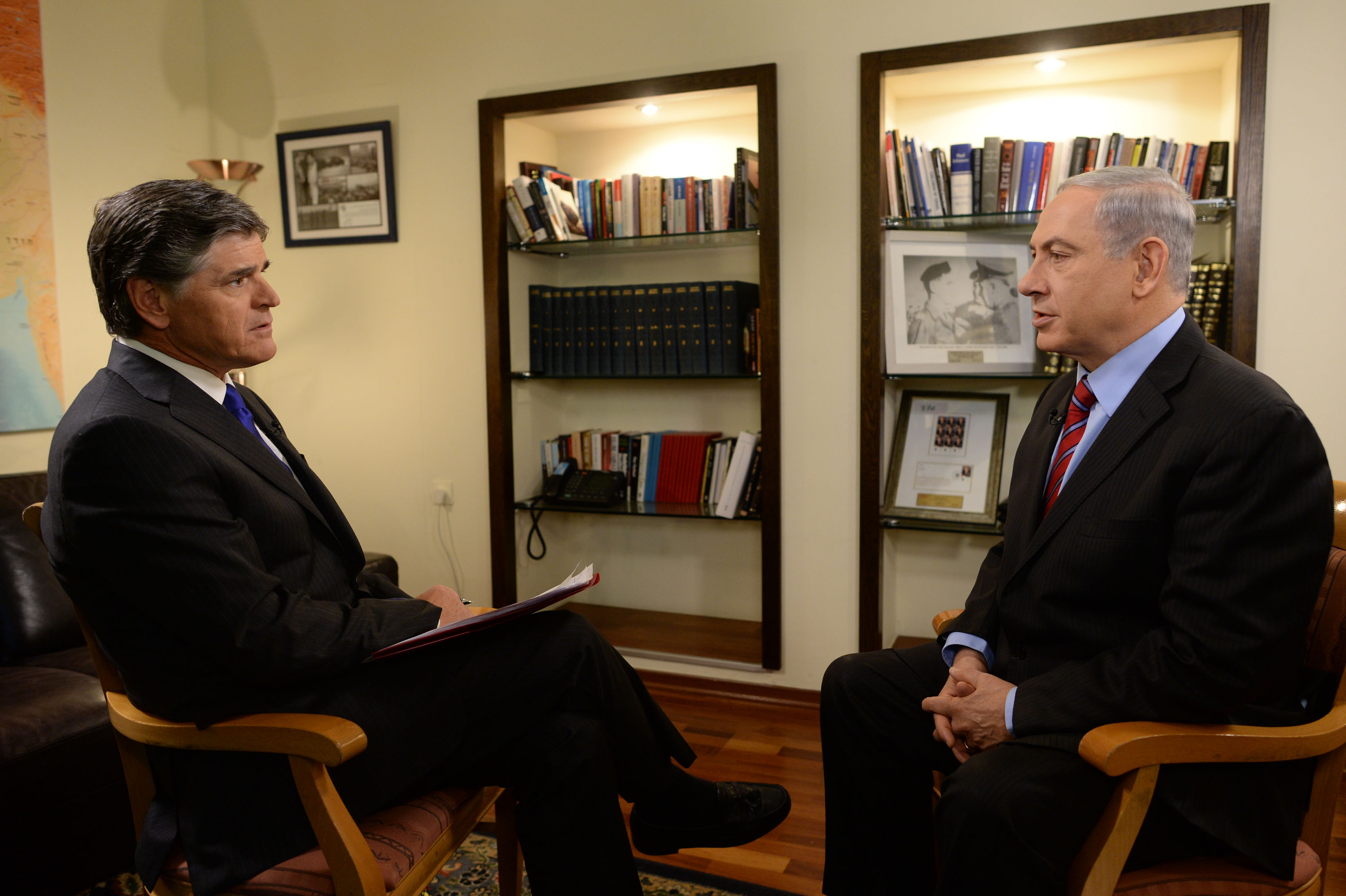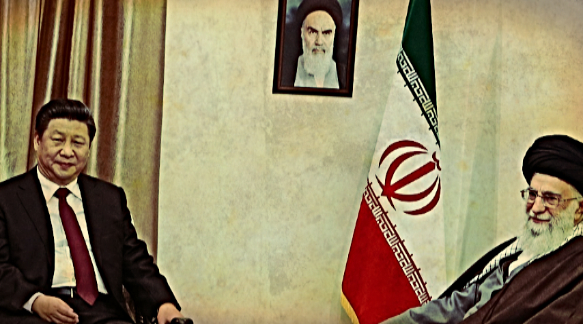Thousands of Jews and Israel supporters engaged in Hasbara daily during Protective Edge. But how effective is it?
Protective Edge has been well fought in the court of public opinion no less than on the ground • But with all the hashtags, media appearances and infographics, no-one seems to wonder what exactly it's meant to achieve • Time for a serious and realistic look at one of Israel's most misunderstood political tools

"The whole world is against us!"
Thus ever the rallying cry of many an Israeli or Jew, usually during wartime when the emotions run high and the hatred is thick and palpable. Those who support Israel look around and see the pervasive hatred – the Nazi comparisons, the selective reporting, the lack of context or knowledge – and for some reason blame Israel for not working hard enough to rebut the lies and distortions in the media and among the general public. The thinking goes that if we only explain our side of the story, the hatred and bias will subside.
Hence "Hasbara".
Hasbara, literally "explanation" in Hebrew, is just as contested an issue as the bias and hate it purports to fight. Contrary to its often nefarious image among more hardened anti-Zionists, it is not some evil disinformation campaign centrally controlled by the Jewish Politburo. Rather, much like its pro-Palestinian counterpart, Hasbara is a loose network of official, semi-official and entirely private efforts to improve Israel's image abroad.
Some activists simply seek to ensure Israel is discussed and understood in a balanced manner, others aim more to show just how evil the people we fight truly are. Some emphasize Israel's liberal character while others are more fervently nationalist. You can disagree with all of it, but there is no "party line" to which (at least private) Hasbara advocates are bound to.
As important as the Hasbara efforts are, I think it's time we started asking ourselves just what Hasbara is meant to realistically achieve and why. Who are we trying to convince? More importantly – why is it so important that we convince them? This article will examine some of the key "audiences" of hasbara and try and see just how much we can do, and more importantly – how much we should do.
A few caveats are in order before we start.
First, this is not a scientific survey, rather an analysis based on a gleaning of available information. Indeed, the purpose of this article is to show the importance of making a more careful study and avoid the slogans, clichés and generalizations so common to the conflict in general and the issue of Hasbara in particular.
Second, I'm assuming that the need for Hasbara, or lack thereof, would exist regardless of who's sitting in the Prime Minister's seat. After all, the much-criticized Operation Cast Lead and the Second Lebanon War were both launched by dovish Prime Minister Ehud Olmert, the same one who was prepared to make very serious and far-reaching concessions to Abu Mazen in 2008.
Third, this article is in no way meant to disparage the efforts of the many, many friends Israel has. I have nothing but admiration for the bravery of the many people who have endured insults and even death threats to provide appropriate context and facts about Israel. Many Hasbara activists work unceasingly, often for little if any monetary reward and I'll bet lots of sleepless nights, too. If this article sounds critical, it is meant as constructive criticism, with the aim of fine-tuning and focusing Hasbara, not a dismissal of the whole enterprise. I am more than open to hearing criticism, suggestions or ideas from its practitioners.
With that, let's begin.
The Media Will Remain Biased
Let's start with that great bugbear of Hasbara, some might even say its permanent stumbling block – the foreign media, whether national or international. I have yet to see a Hasbara activist or friend of Israel who hasn’t complained about the ostensibly pervasive bias of the world media when it comes to Israel and especially the Israel-Palestinian conflict. Some, I think, harbor the belief that if only the media were truly as balanced as they'd like, public opinion would change accordingly.
Let's start with the obvious: mainstream media outlets – both national and international – are indeed often biased against Israel. There are many reasons for this. The first, and in my opinion the most minor, is personal hatred or dislike of Israel or at least its government. There's no need to list the examples; just look up the origin of the word "fisking" for a particularly egregious example. Furthermore, with cutbacks to news staff, many outlets rely on local (re: Palestinian) "stringers" to provide information on the other side of the fence, with predictable results.
But the reasons go deeper than simple animosity. One is the problem of superficiality. In an age of "Twitter journalism" and instant headlines, reporters are under tremendous pressure to provide link-bait, even at the expense of accuracy or context. 'Mida' covered one such story, in which an over-eager reporter claimed Israel had falsely blamed Hamas for the kidnapping which began the present round of hostilities, based on a distorted interpretation of a single source during a complicated and ongoing investigation.

It's much easier to take a picture of rubble or a dead child and write up a human interest piece or make sensational but shaky claims of war crimes than to do a more careful and nuanced story which includes context such as the difficulties of fighting terrorists who hide behind civilians. It's easier to simply ape claims about problematic casualty numbers as established fact than to look deeper and be more critical of the same.
Furthermore, even if reporters wanted to provide that context – say by photographing rocket launches or terrorist fighters – most are too scared to do so. As veteran journalist Mark Lavie poignantly explained, terrorists and dictatorships can ensure positive coverage of areas under their control simply by threatening to kill journalists or their families.
Complain though we might about such disgusting tactics, there is no reason to assume Hamas or anyone else will change tactics which work and which cost them nothing. Nor is it likely that media outlets will take care to stress these conditions, given how that would lead Hamas to deny them the right to report from their territory.
What all this means is that the media is biased and will remain so for the foreseeable future. While I commend the efforts of organizations like CAMERA and Honest Reporting and admire their tenacity, forcing corrections and apologies on a few articles here and there is like trying to stop a flood with your bare hands. Without fundamental institutional changes in the way media functions nowadays, they are not likely to have a long-term effect.
It's now that detractors of Hasbara come out in full force: You see! It doesn't matter! Only if we change our policy can we improve our image!
Their argument can be summed up thus: favorable world opinion is an asset so strategically valuable and necessary that we need to make perhaps critical concessions in other areas. These would include being as generous as possible to the Palestinian in peace negotiations even at the expense of basic security and demographic concerns or effectively avoiding military responses of almost any kind against terrorists, since it is impossible to avoid civilian casualties when fighting organizations like Hamas.
The problem with this assumption? It's flat out wrong.
Does the world really hate us? And even if so – who cares?
"But the world hates us!," you say. Look at the Twitter campaigns, the violent demonstrations and placards, the nasty comments and articles! Most of the world thinks we're one of the greatest obstacles to world peace!
First of all, most of the global general public is politically ignorant. This means that they know little to nothing about the basic, undisputed facts about political subjects both local and international. This is a phenomenon that is true even in hyper-connected America, and even more so in dictatorships or countries with tightly controlled media. It is true regardless of religious or political affiliation or levels of education.
Political ignorance is so prevalent not because people are unable to learn about subjects like the Middle East or any other political subject – they just don't have the energy and time, which they'd rather spend on things which are more enjoyable and fruitful. Besides, since when did ignorance prevent one from being passionate about something? Look at any twitter or Facebook conversation and your jaw will drop from the utter cluelessness.
But this also means that most people don't really put Israel at the "top of the list of things to worry about" and be active in. We're fighting just one of many conflicts "over there," destined to disappear from public attention or interest once some fresh crisis arises elsewhere, as has happened numerous times this summer alone.

Second, the argument that the whole world hates us is a little too simplistic. True, BBC polls show that most of the world sees Israel as having a negative influence on the world. But take a closer look, and you'll find that the public of almost every country has a "plague on both your houses" approach to the Israelis and the Palestinians.
A comprehensive study of people throughout the world showed that most consider both Israelis and Palestinians to be about equally at fault for the failure of the peace process, and the majority of countries prefer their own country remain neutral on the matter. Even the much-touted study of American Millennials' attitude towards Protective Edge shows merely that the younger generation of Americans is becoming more like the rest of the world in this respect.
Third and most importantly – what difference does any of this make anyway? Yes, it's not fun to be called a Nazi, blasted in the media as war criminals or lose friends. But all of this is hardly a reason to see world opinion as a decisive strategic asset which means Israel must compromise what it sees – regardless of government – as its national prerogatives.
The argument that we need to conduct Hasbara (or change policy) to stop or moderate the wave of violent anti-Semitism presently washing over Europe doesn't pass the smell test. The overwhelming majority of violent protests were conducted by radical Muslims often waving ISIS flags and yelling "Hamas, Hamas, Jews to the gas." Something tells me they don't much care about the niceties of Israeli military tactics or who was responsible for the collapse of round #257 of Israel-Palestinian peace negotiations.
Open to rational discussion? Radical Muslim demonstrators screaming 'Hamas, Hamas, Jews to the gas' in Germany.
Ah, you will say. That same public opinion will affect the actions and behavior of governments around the world, leading to economic sanctions of all kinds, tougher and more pro-Palestinian diplomacy and perhaps even diplomatic isolation.
I hate to be the bearer of bad news, but the people who are most obsessed with polls are, well pollsters. And the media who reports them. Politicians, meanwhile, consider polls to be one of a number of factors to consider, and often not the most important one. Egypt has become a great friend of Israel because of its hatred of Hamas but in spite of Egypt's traditional pro-Palestinian sympathies. The English, French and German heads of state have all been openly pro-Israel even though their respective constituencies are far from clearly supporting our side in the conflict (Recent threats by Britain to suspend arms contracts are by their own admission temporary, not evidence of a fundamental change in policy). Conversely, Obama has consistently pushed a more neutral line on Israel in spite of overwhelming support for Israel in polls.
As for government economic sanctions, these have been an abject failure. The biggest threat being bandied about is labeling (or boycotting) goods from the West Bank or the Golan, and even that has only had very partial success in the EU. Stores or businesses which divest themselves from Israeli goods and services are notable for their novelty rather than being a wholesale or routine occurrence. Organizations voting to boycott or divest from Israel have almost always been student organizations or other minor players, making lots of sound and fury about people no-one knew even existed or were still around.
So, what is Hasbara good for, you ask? Mostly, it's good for strengthening people who are pro-Israel or neutral in various countries, governments and companies.
Rallying the Israeli Supporters
I can hear you already. What? Who the hell cares about Israel supporters? What use is convincing the already convinced? If Hasbara is only good for "rallying the troops," then it's useless!
Yeah, no. True, I don't think adding a few positive percentage points (say that three times fast) on polls of Israel is really feasible based on Hasbara alone or worth the enormous private and public expenditure and effort. But maintaining the support of friends of Israel is critical for other reasons.
First, private citizens who are pro-Israel are people most likely to contribute much-needed investment and donations or contribute in myriad other ways such as volunteering or recommending the country to friends. Engaging in Hasbara helps those who support us feel like they're on the "front lines" of Israel's war and maintains their emotional and intellectual attachment – even when they disagree with one another. Furthermore, given how much support for Israel correlates with maintenance of Jewish identity, engaging in Hasbara is a fairly easy way to keep Jews Jewishly attached.
Second, targeted – as opposed to general – campaigns towards people in positions of power and influence is worth far more than a campaign to win the hearts of millions of the generally uninvolved. Retaining the support or at least neutrality of such people is crucial. There is also importance in giving moral support to our many supporters and defenders, even if that is not always strategically critical. Public Relations may not convince, and it may not usually be strategically decisive, but it is an important tool of diplomacy nonetheless.

Conclusion
Contrary to the facile ideas of the liberal jet set, statecraft is not a popularity contest or a matter of who gets the most hashtags and likes on facebook. Hasbara, like war or peace negotiations, is the furtherance of policy by other means, to mangle Clausewitz's dictum. It has built-in uses and drawbacks and needs to be used or at least channeled towards concrete ends, not just as a ready riposte for being called nasty words, important though that is.
Furthermore, it is one tool among many, not a cure-all for Israel's political position, at least some of the causes for which are not really in our control. Many on both the right and left complain that Israel doesn't seem to have a long-term, well-thought strategy vis-à-vis the Palestinians. It's past time we start figuring one out for Hasbara.
To receive updates on new articles in English, join Mida on Facebook or Twitter or join our mailing list.





Great post.
I think you have missed one type of people. Once arguing online (social media) or offline (in a bar) with an anti-Israel/anti-Semitic/pro PL, observers or political ignorants might decide to open their minds a bit more and listen. Some of those people were exposed to one fact and followed it alll their life as they have never tried to search for more (as you mentioned) but sometimes they just need to be exposed to a different point of view and or opinion (like first time listenning to a real Israeli/jewish/pro-Israel).
Why is it important?
First, if they do agree with you even partially its already a good motiviation factor as it actually works.
Second, if they have agreed with you they might even take the position of a new unofficial embassafor of Hasbara which leads back to reason #1.
Thank you.